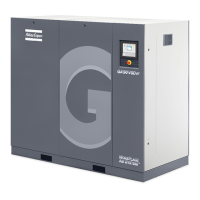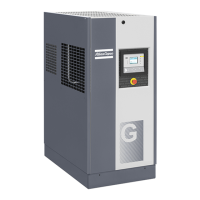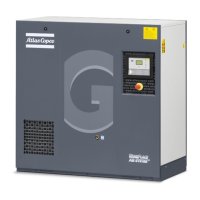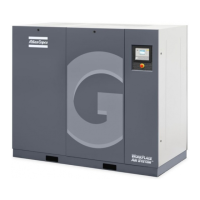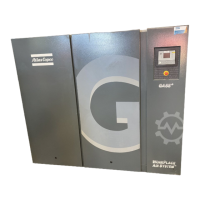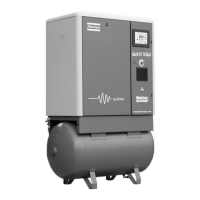5.2 Operation
General
Condensate flow scheme
1 Condensate inlet
2 Foam cover
3 Oleophilic filter
4 Service drains with valve
5 Air injection connection
6 OGC filter
7 Activated carbon filter
8 Condensate test outlet
9 Condensate outlet
The OSCi 3790 housing consists of 3 interconnected vessels. The oil-containing condensate is injected (1) in
discontinuous bursts at a downward angle into the first vessel which acts as expansion chamber. The specially
designed cover has a combination of pressure-relieving holes and a foam (2). Since the pressure is relieved
here, the entire OSCi device is pressureless. In the first vessel, a floating filter (3) made of special synthetic
fibres takes up most of the directly separable hydrocarbons from the condensate. The filter sinks as it saturates
with hydrocarbons and hence the lifetime progress of the filter can be measured by an indicator that rests on
the bag. A conventional sight glass is installed for visual inspection of the filter position and the condensate
level. On top of that, an electronic position sensor (8 - View of OSCi, 1 - View of OSCi inlet) is connected
to the Elektronikon® Graphic regulator of the compressor to keep track of the filter lifetime without the need
to open the compressor canopy.
The outlet of the first vessel is situated at the bottom and is connected to the upper half of the second vessel.
In the second vessel, the pre-filtered condensate is brought in contact with a filter bag (6), filled with
oleophilic
granular clay (OGC). Through a connection (5) at the bottom of the second vessel, air is injected into the
Instruction book
2920 7109 60 123
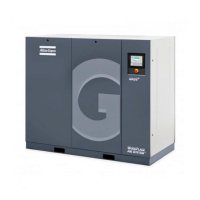
